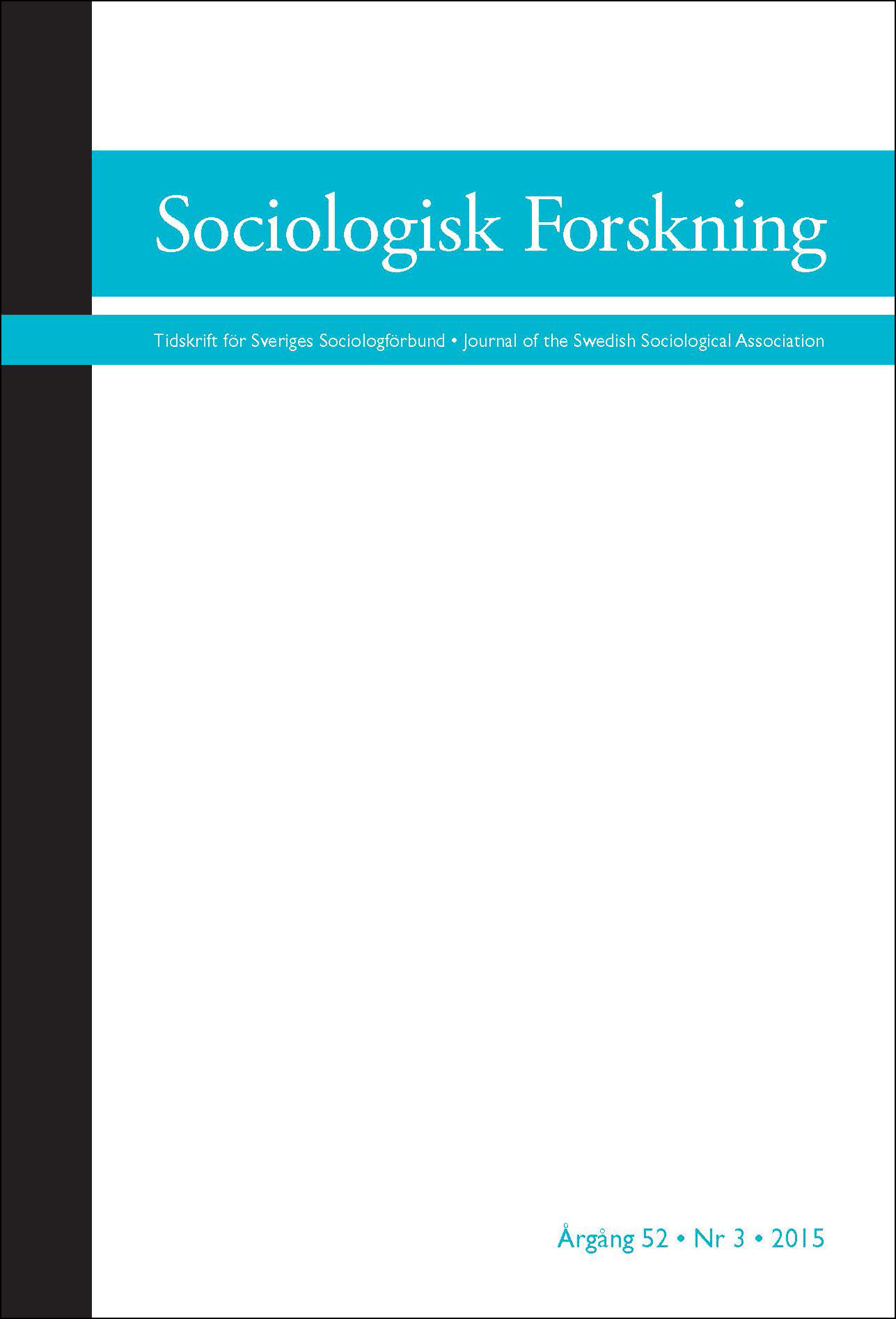Upplysning och gränsdragning
en filosofisociologisk studie av den första generationen analytiska filosofer i Sverige
DOI:
https://doi.org/10.37062/sf.52.18291Keywords:
boundary work, history of Swedish philosophy, sociology of ideas, sociology of knowledge, sociology of philosophyAbstract
Enlightenment and boundary work: a study of the first-generation Swedish analytical philosophers from a sociology-of-philosophy perspective
The history of Swedish analytical philosophy begins with the writings of Ingemar Hedenius, Anders Wedberg, and Konrad Marc-Wogau, who introduced the country to a new style of thinking that was to become the dominant mode of academic philosophizing in it from the mid-1940s to the late 1960s. The article presents a sociological analysis of how that hegemonic position was claimed and established for it in Swedish philosophy departments. In particular, the critique that Hedenius, Wedberg, and Marc-Wogau levelled in their popular writings against continental philosophy is looked upon in detail. Drawing upon Thomas Gieryn’s theory of boundary work, it is shown how the three strove for epistemic authority by demarcating their own ‘scientific’ enterprise from the ‘unscientific’ philosophy of their competitors. This quest for authority, however, was pursued not solely for its own sake: Hedenius, Wedberg, and Marc-Wogau were also all firmly committed to the ideals of enlightenment and cultural radicalism shaping the Swedish society of their time.
Downloads
Published
How to Cite
Issue
Section
License
All content in Sociologisk Forskning is published with immediate open access, under the Creative Commons license CC BY-NC-ND 4.0.
All content may be read, downloaded, shared and printed for non-commercial purposes, free and without fees. Contents may not be altered. When content is reused, author, source and a link to the copyright licence must be provided. The author retains copyright to their content. No publication fees are charged.





